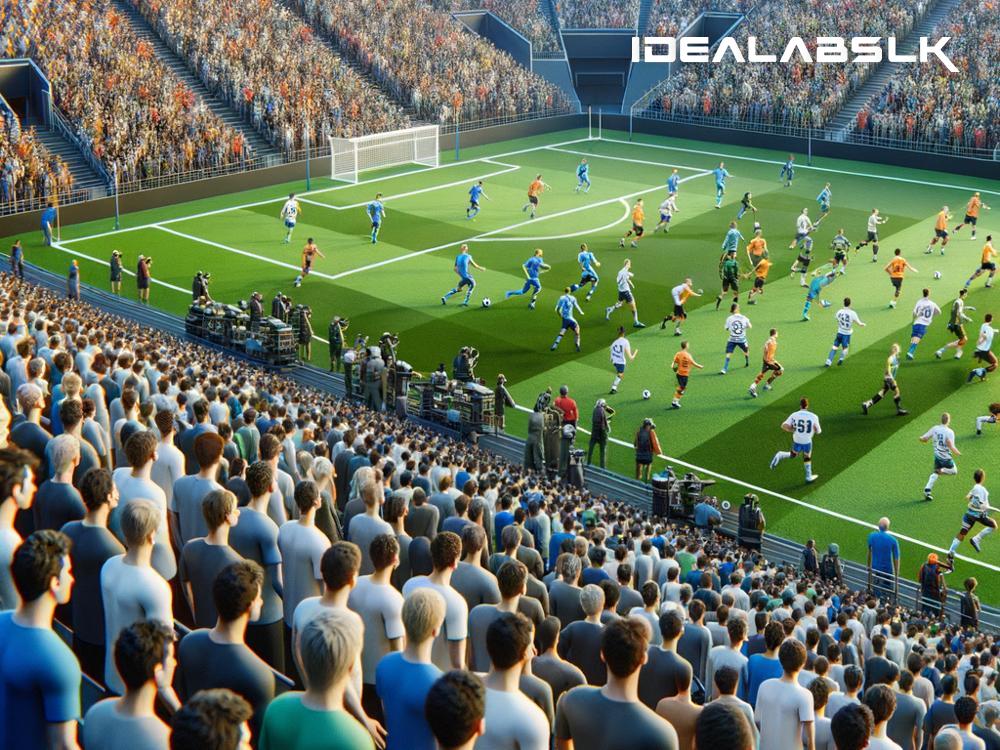AI in Sports Games: Revolutionizing Player Interactions and Realism by 2025
As we edge closer to 2025, the horizon of sports video games is being radically reshaped by advancements in artificial intelligence (AI). The integration of AI into sports games is not merely a shift; it's a giant leap toward unparalleled realism and deeply engaging player interactions. For years, sports video game enthusiasts have longed for a gaming experience that mirrors the unpredictability, dynamism, and emotional intensity of real-world sports. Thanks to AI, that dream is fast becoming a reality.
The Evolution of Sports Games
To appreciate the impact of AI on sports games, let's take a quick look back. Initially, sports games were quite basic, focusing on simplistic representations of sports. As technology evolved, so did the complexity of these games, offering better graphics and more realistic gameplay. However, one aspect remained notably artificial: the behavior of non-player characters (NPCs) and crowds. They followed predictable patterns, lacking the spontaneity and depth of real human opponents and audiences.
Enter AI: A Game Changer
The introduction of AI into sports games is literally changing the game. AI's capabilities are making it possible for NPCs to learn from every interaction, adapt their strategies, and even develop 'personalities' that evolve. This means that playing against the computer is no longer a mundane, predictable affair but a dynamic challenge that mirrors the unpredictability of human opponents.
AI and Player Interactions
One of the most exciting applications of AI in sports games is in enhancing player interactions. Imagine a football game where each player on the pitch has their own AI-driven personality. A striker might become more aggressive if they're on a scoring drought, while a goalie could become more cautious if they've let in too many goals in recent games. These behaviors will not be scripted but will evolve based on the context of the game, making every match a unique experience.
AI is also set to transform how players communicate with their team and the game world. Through natural language processing, a branch of AI, players will be able to issue commands and communicate with their team in real-time using their voice. This development promises a more immersive and intuitive gameplay experience, making you feel like you're truly on the field, court, or track.
Enhancing Realism
Realism in sports games is not just about high-definition graphics; it's also about how the game feels and reacts, mirroring the subtleties of real sports. AI plays a pivotal role here by simulating the physics of sports more accurately. Whether it's the spin of a football, the bounce of a basketball, or the aerodynamics of a car, AI algorithms can calculate these with high precision, enhancing the authenticity of the gameplay.
Crowd dynamics are another aspect where AI is set to make a significant impact. Instead of static, predictable crowds, AI allows for dynamic audiences that react to the game as it unfolds. Score a last-minute winner, and you'll see the crowd erupt in jubilation; miss a crucial penalty, and you'll witness a palpable sense of disappointment. This level of detail adds depth to the gaming experience, making victories sweeter and losses more poignant.
Looking Ahead: The Future of Sports Games in 2025
As we look toward 2025, the potential of AI in sports games is boundless. We can expect games that are not only more realistic but also more personalized. AI will be able to tailor the gaming experience to the individual player, adjusting difficulties, and even game narratives based on the player's skill level and preferences. This level of customization means that no two gaming experiences will be the same, making sports games more engaging and replayable than ever before.
Moreover, the social aspect of sports games is set to deepen. AI-powered avatars could represent real players in online worlds, interacting and playing in real-time, creating a vibrant, globally connected sports gaming community.
Conclusion
The future of sports games, powered by AI, promises to deliver experiences that are more immersive, interactive, and realistic. As we move toward 2025, we can look forward to games where the line between virtual and real sports becomes ever more blurred. AI in sports games is not just improving player interactions and realism; it's redefining what sports gaming can be. For fans of sports video games, the future is not just bright; it's exhilarating.

